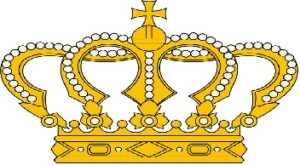What is made up of Nigeria consisted of many republics which formed great empires in the past. The Kanem-Bornu empire came into being under Kanuri Kings of the Sefawa family. The dynasty held power from about AD 850.
In 1086 a Sefawa known as Hume later Known as Ibn ‘Abd al-Jehil adopted Islam. And from thence the empire ruled for 800years. It was through Kanem that goods, like horses metal ware, salt and copper from Egypt and other northern lands were exchanged for kolanuts and ivory.
During the sixteenth century Civilization developed steadily. There was growth in learning and trading between Kanem- Bornu and the Egyptian and Tunisian provinces of the Turkish empire in North Africa.
Towards the end of the eighteenth century, the empire gradually declined in strength due to attacks especially from the Fulani leader, Usman dan fodio.
The Hausa States
The history of Hausa state dates back to the eleventh century, and by 1350 Hausa states are beginning to form, neighbouring farmers chased by invaders could take refuge in Hausa towns and by so doing pay taxes to the rulers of these cities.
Many Hausa cities are engage in trade and politics of which are Daura, Gobir, Katsina, Kano and Zaria among others. Islam came to Hasua land later than other cities.
The Fulani
The Fulani people were believed to come from the Senegal River valley where they were known as breeders of cattle. In 1804, Usman dan Fodio led a Jihad with the aim of establishing a purer form of Islam and established Fulani rule into Northern Nigeria except Bornu.
The new empire was divided into two the western sector with headquarters at the Gwandu was under the administration of Abdullahi while the eastern sector was placed under Bello who ruled from Sokoto. The greatest achievement of the Fulani empire was the establishment of a uniform system of government in Hausa cities of Katsina, Kano, Kebbi, Gobir and other places in Nigeria beginning from 1830.
Eastern Kingdom
The Ibo, Ibibio, Efik and the Ijaws lived in the eastern Guinea. It was believed that it was from this region that the early Iron Age people learned the knowledge of iron smelting. From pre historic times, the Ibo and their neighbours lived in the fertile land of the east of the lower part of the Niger. Politically the population was divided into five groups of the northern or Onitsha (and Nri Awka) Ibo, the southern or Owerri Ibo, the Ibibio and Efik of the Cross River region, the Ijaw of the Delta and the north-eastern or Ogoja people. The people practiced agriculture and trading.



